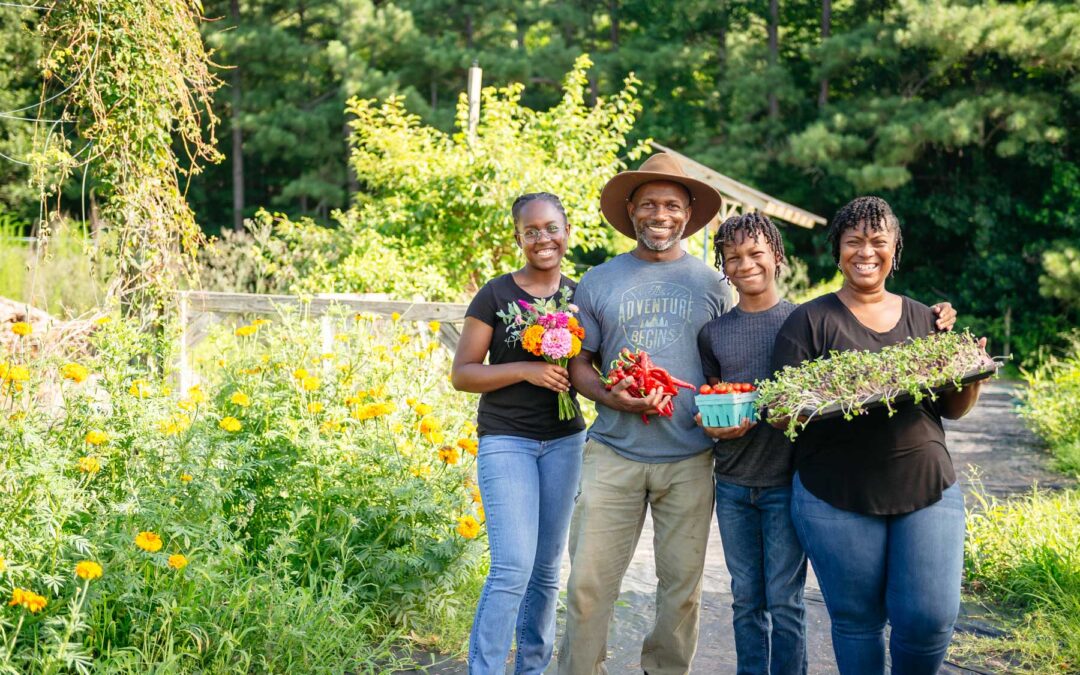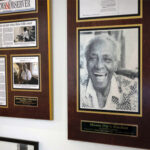By James Dupree | Photography by John Michael Simpson
Trading in his chef’s hat for farmer’s boots, Howard Allen followed his calling to cultivate a beacon for community and sustainability
“I had no intention of being a farmer at first,” says Howard Allen, owner of Faithfull Farms, as he stands in front of his eight 100-foot high tunnel greenhouses, each with gorgeous green bountiful rows of produce. Although his career in farming may not have been planned, Howard is no stranger to working with food. For 20 years, Howard worked as a classically trained culinary and pastry chef for various eateries in the Triangle, most notably The Carolina Inn. He also taught as an adjunct instructor for 10 years in the culinary arts at Alamance Community College, the same institution where he trained.
Then Howard received what he believed to be a message from God. “The voice inside said to build a farm,” he says. “I asked why, and the response was, ‘It would be needed in the future.’” A man of faith and a regular attendee of Life Church (located not far from East Chapel Hill High School), Howard took the message to heart. However, faith wasn’t the only thing that spurred Howard’s change in career. “As a child living in Jamaica,” he says, “I would walk out the front door and have fresh fruits and vegetables at my disposal. So, I wanted to give my family some sense of what I had growing up.” He and his wife, Ronniqua Allen, have a 16-year-old daughter, Amaya Allen, and a 12-year-old son, Cole Allen.
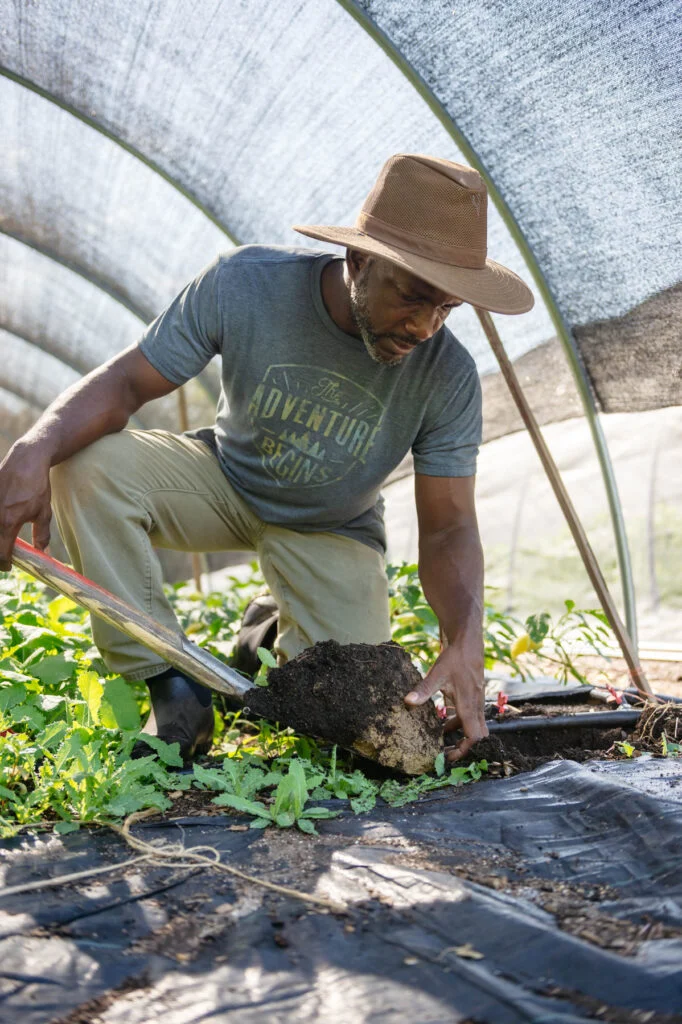
Howard demonstrates his regenerative soil practice in the greenhouse.
In July 2017, Howard followed his calling and walked away one year into his position as executive chef with Reverence Farms Cafe in Graham. “I took a 95% pay cut and started from scratch,” he says. The Life Church leadership believed in Howard and his skill to implement his vision. With permission to use the church’s 9-acre plot of land off of Old Greensboro Road, he got to work and in 2018, Faithfull Farms officially launched.
The farm uses a regenerative farming system, going beyond the traditional standards for organic growing. “Everything we embody is about faith, community, healing and being one with the land,” Howard says. “Our rightful place is to be stewards of the land, to leave it in the same state or a better state than it was given to us.” Crop rotation, intercropping (where multiple varieties of edible plants are grown together) and the inclusion of composting worms and insects help to promote good soil health and fertility without disturbing the overall natural state of the land. Between each high tunnel house are ditches filled with wood chips to help control stormwater runoff from the houses. The retained moisture in the wood chips is then absorbed by the crops’ roots. “[The wood chips] also add a good balance of fungi and bacteria to the soil,” he says. “We try to focus on how we can create a symbiotic environment that requires less and [also] less effort by the farmer.”
Apart from Howard, the farm has four employees who keep the business running year round. Crops are rotated on a seasonal basis as the high tunnels are not heated in the winter. Typical produce includes cucumbers, lettuce, kale, onions, peppers, sugar snap peas, carrots, beets, hakurei turnips and arugula. The fruits of their labor are then sold at the Carrboro Farmers Market on Wednesdays and Saturdays, and at the Pluck Farm Farmers Market on Thursday evenings. Their produce is also sold wholesale to Weaver Street Market and made available through Tall Grass Food Box, a local subscription-based grocery service.
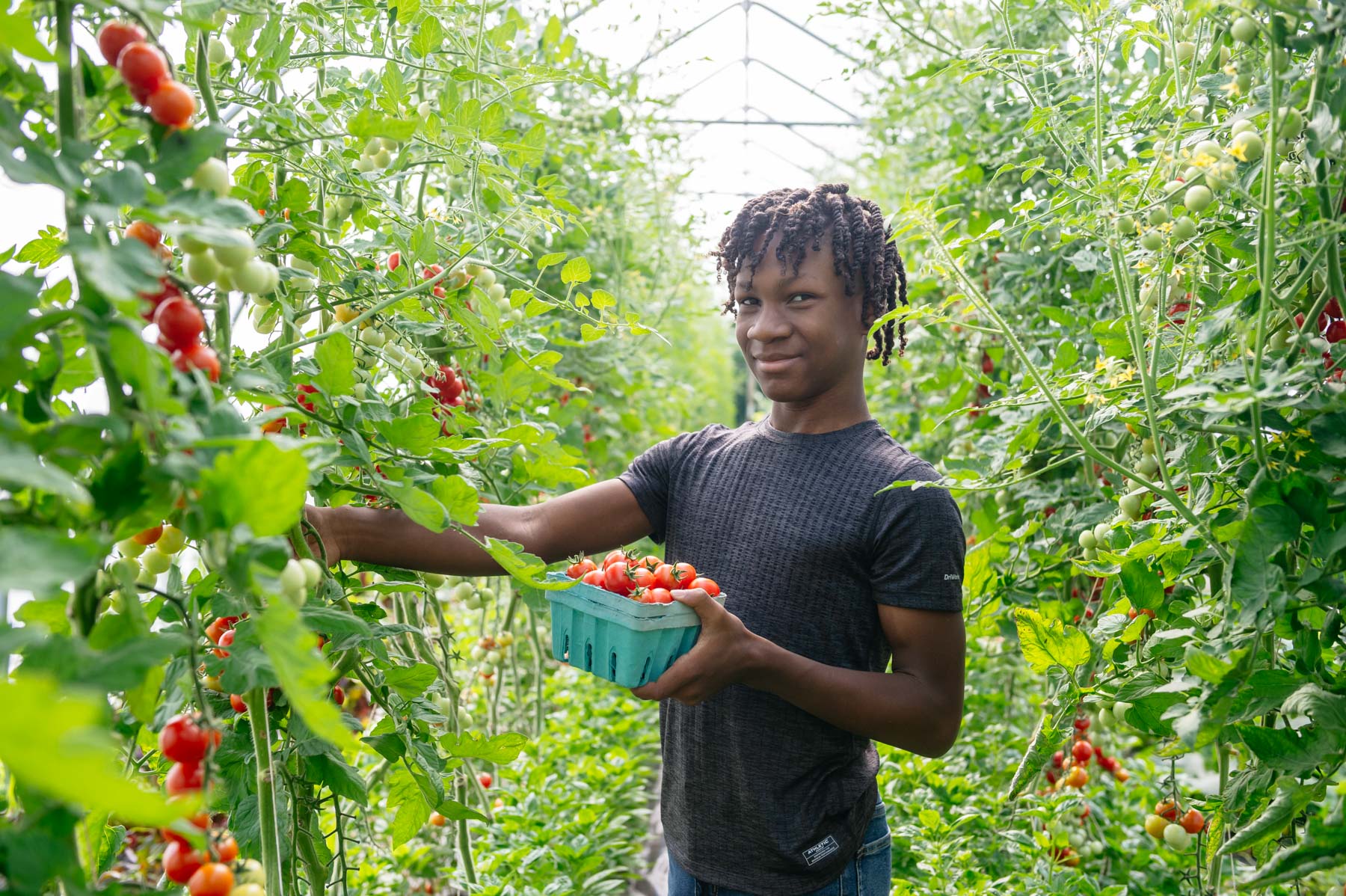
Cole picks tomatoes from the greenhouse.
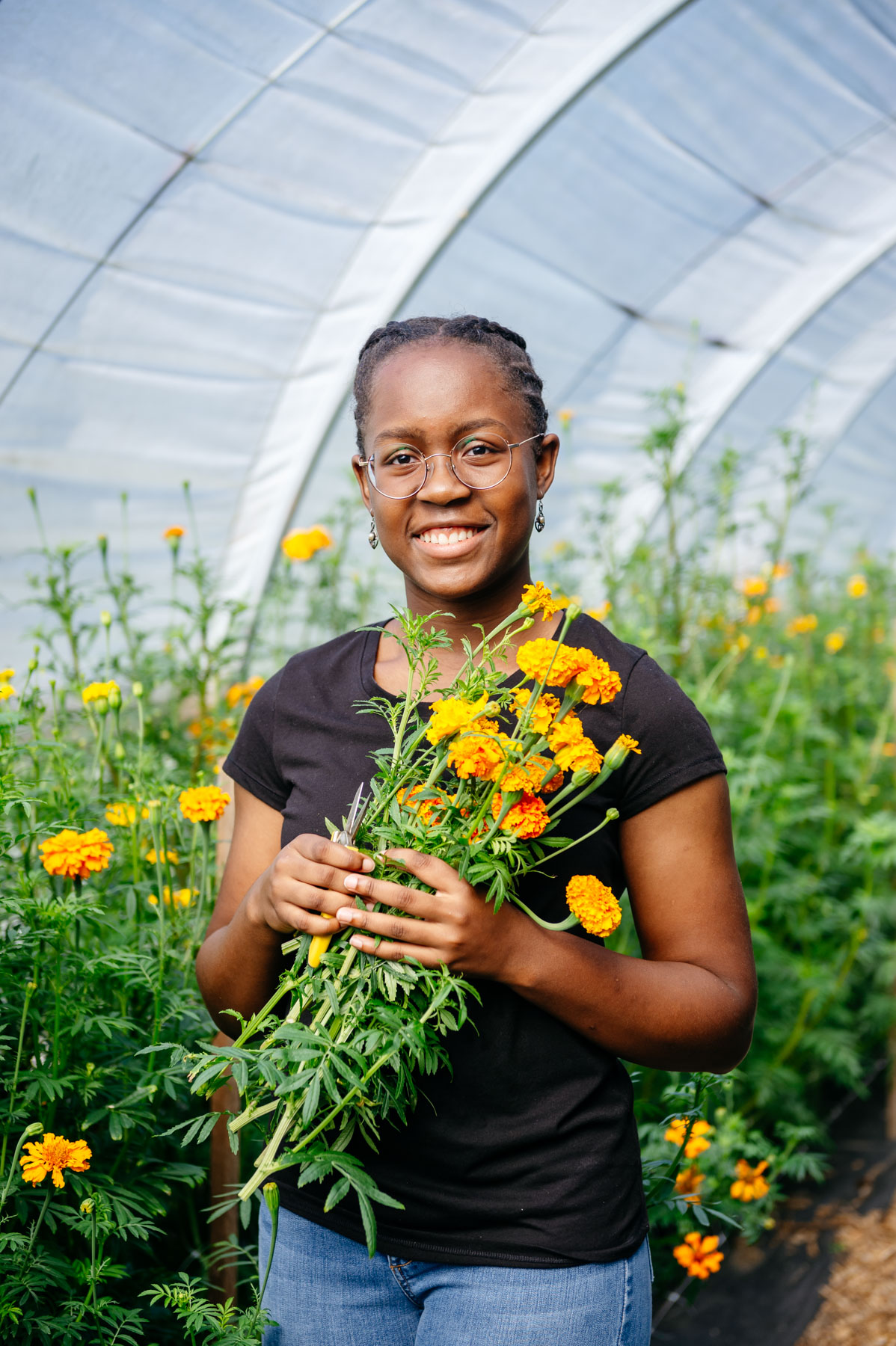
Amaya’s favorite thing to do on the farm is to grow flowers.
Since its humble beginnings, the farm has become a land of opportunity for Howard, his family and many others. Daughter Amaya is in the beginnings of her flower cutting and bouquet business, using one of the houses to grow eucalyptus, strawflowers, sunflowers and marigolds, to name a few. “It’s a rite of passage in our family for you to have an understanding of how to run a business before leaving home,” Howard says. Amaya is also working on hosting workshops in the next year where visitors can tour the farm and learn how to cut and make bouquets. Son Cole is still working on ideas for his entrepreneurship. “[Cole] grows and sells fruit for the farm, but he likes video games and YouTube, so we’re figuring out something that [fits within his interests],” Howard says. “Parents on family farms are often trying to force what they did onto their kids, rather than let them create new opportunities. I want my kids to find a place for their calling and their skills.”
In 2021, Ronniqua left her position as a senior technologist for Labcorp to maintain the family’s 2 ½-acre homestead less than a mile from the farm. Using her background in microbiology, she grows produce in their two 50-foot high tunnel houses and multiple planting beds. Each week, Ronniqua produces 60 trays of microgreens for sale at farmers markets. She also focuses on natural healing methods by growing medicinal herbs for essential oils. When she doesn’t have her hands in the dirt, she works on advertising the farm’s event space, a farmhouse with covered patio, picnic tables and a great view of the landscape. “She loves to do those things,” Howard says. “This land was her platform to find her calling.”
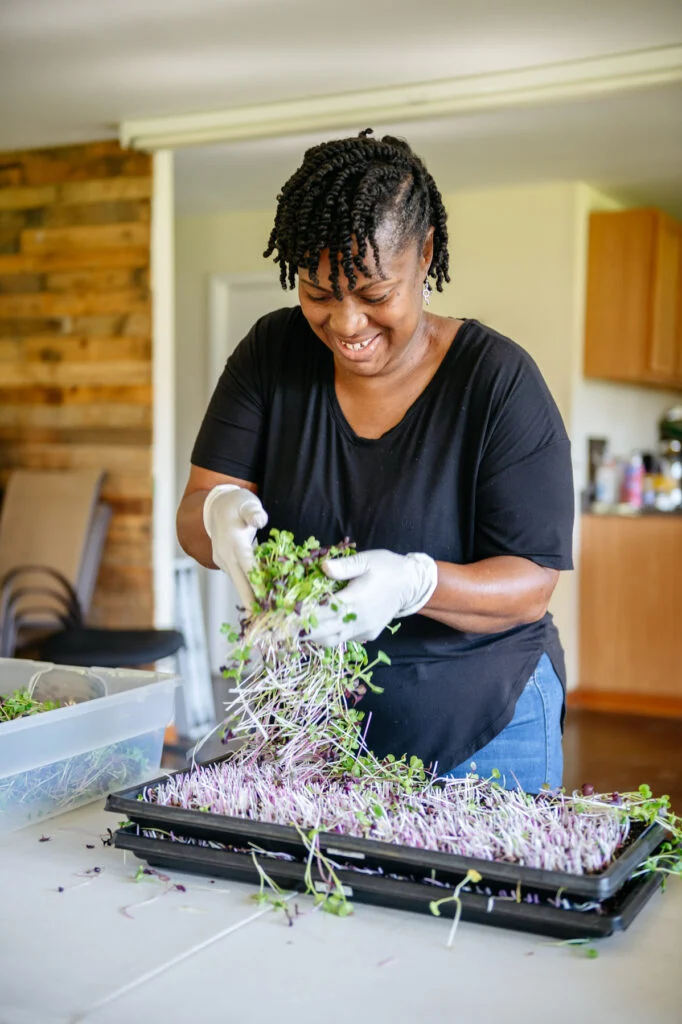
Ronniqua harvests microgreens to be packaged and sold at the market.
The farm also partners with The Gathering Space, a Durham-based counseling service that brings clients to the farm and uses one of the high tunnels to plant seedlings, later transitioning their herbs and vegetables to planter boxes. “They have access to the farm, and we make no contact with them so that they can have therapeutic healing in a wholesome environment,” Howard says.
He uses the farm for consulting both new and experienced farmers on implementing replicable growing systems similar to its own. The idea is to help existing farms and agribusinesses thrive and to help jump-start new, local farms.
In the next five years, Faithfull Farms plans to expand its growing beds and focus on perennial fruit production, including blueberries, blackberries and strawberries. “We’re always having fun and trying new things and bringing people in who have new ideas,” Howard says.

